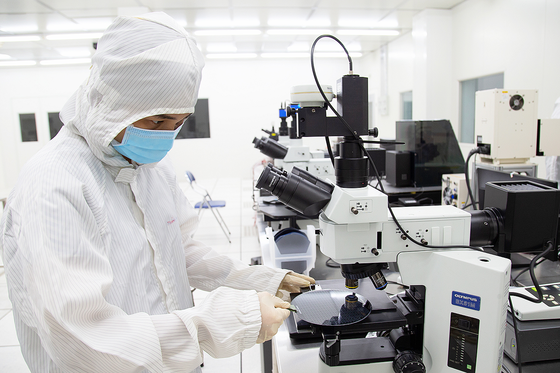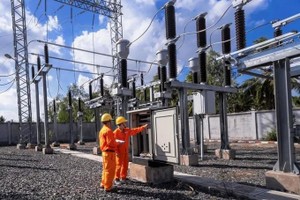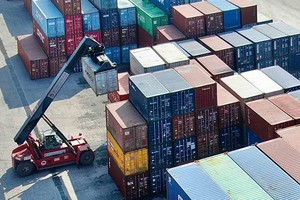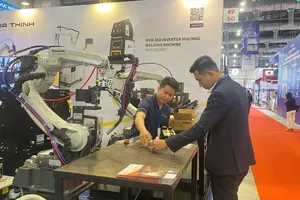 |
The Saigon Hi-tech Park Incubation Center in Ho Chi Minh City Hi-Tech Park manufactures semiconductor chips for smart devices (Photo: SGGP) |
Half the term of the 13th Party Congress had passed when the country fell into trouble because the national economy had been heavily affected by the rapid, complicated and unpredictable developments in the globe, plus the Covid-19 pandemic and the decline of the world economy.
In the past two and a half years, the world has continuously fallen due to the Covid-19 pandemic, strategic competition between major countries, conflicts between Russia and Ukraine resulting in disrupted supply chains, high inflation, soaring interest rates, declining growth; even many countries have seen negative growth. In such a world context, Vietnam has well controlled the Covid-19 pandemic while still maintaining the production link with the world.
moreover, while the world economy declines, Vietnam’s economy still grows. Economic growth increased by 2.56 percent in 2021 and it increased by 8.02 percent in 2022. This success stems from the maximum efforts of the Government that have adopted unusual policies, both trying to fight the epidemic while maintaining production and making the economy recover.
Anotherly, public investment is promoted. Many expressway projects have been kicked off.
The policy implementation aimed not only to help businesses and support people but also to save the market and increase purchasing power.
The Prime Minister has repeatedly emphasized to take advantage of recovery and development to improve the economy quickly. The socio-economic recovery and development program and the supporting policies have not yet been done. Besides, although public investment has been promoted, leading to several changes and is an important driver for economic growth, there still exist many problems.
Working groups to promote public investment solve specific problems of projects whereas to solve many problems that are blocking public investment, a special team must be set up to study and solve them. Disbursement of public investment capital is targeted to pump money into the economy to support businesses.
At the same time, the dual economic structure has also been clearly revealed - an economy in which the domestic and foreign investment sectors are separate from each other and increased reliance on exports and foreign investment.
In the context of a dual economy, high foreign dependence can lead to misjudgment of results because the overall performance is good, but the domestic business sector is much weaker, whereas the Party has determined that internal strength is decisive.
In the context of world uncertainty and decline, high inflation, the Southeast Asian country still maintains macro stability and low inflation. However, the country’s growth relies heavily on the foreign investment sector, but this sector does not use domestic financial capital but relies on foreign sources, and their access to capital does not affect domestic inflation. Meanwhile, inflation is low due to low money output, but high interest rates do not pump money out, so domestic enterprises lack capital and find it difficult to survive. This problem must be solved; otherwise, domestic enterprises will be weak. Weak businesses cannot have stable macros.
The next step needs to do is to dismantle and change the institutional structure so that the domestic sector can rise up. Many supportive policies have been adopted, and interest rates have also been reduced, but the business environment is not good, the conditions are not favorable, and the implementation time of the projects is still long. If the interest rate is reduced, enterprises can only reduce 0.5 percent-1 percent annually or even 2 percent a year; but if the project implementation time is reduced by one year, the enterprise can reduce the loan interest payment by 12 percent-13 percent.
Therefore, reducing the project implementation period is much more beneficial to businesses than reducing interest rates.
Statistics of the world show that all the breakthrough factors for rapid growth are associated with innovation, entrepreneurship, technology and the digital economy. If Vietnam gives priority to this issue, long-term growth will change, quality will also change and this is in line with the Party's orientation towards digital economy and high technology.
























